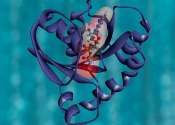Fixing protein production errors lengthens lifespan
Reducing naturally occurring errors in protein synthesis (production) improves both health and lifespan, finds a new study in simple model organisms led by researchers at UCL and MRC London Institute of Medical Sciences.









